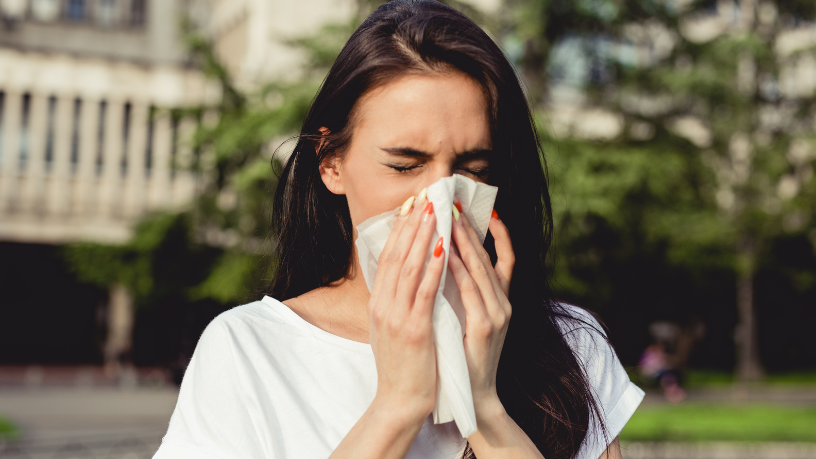Seasonal allergies are a common issue for millions of people worldwide, with symptoms that can disrupt daily life and lead to significant discomfort. One of the main culprits of these allergies is pollen, which is released by trees, grasses, and weeds during certain times of the year. While seasonal allergies may vary in severity depending on the region and the time of year, they generally affect individuals when pollen counts are high, typically in the spring and fall. Managing these allergies effectively requires a combination of understanding the symptoms, recognizing the triggers, and using the right treatments to alleviate discomfort. In this article, we explore the most effective seasonal allergy treatments and how they help people manage their pollen-related symptoms.
Understanding the mechanisms behind seasonal allergies is the first step in addressing them. When pollen enters the body, it triggers the immune system to overreact, releasing histamines that cause common allergy symptoms such as sneezing, itchy eyes, congestion, and runny nose. The symptoms can range from mild to severe, with some individuals experiencing more serious effects like asthma attacks or sinus infections. For those who are particularly sensitive to pollen, even a short exposure can cause these symptoms to flare up, making it essential to take proactive measures for prevention and treatment.
When it comes to seasonal allergy treatments, over-the-counter medications are often the first line of defense. Antihistamines, decongestants, and nasal sprays are commonly used to provide relief from the symptoms caused by pollen exposure. Antihistamines work by blocking the action of histamines, which reduces symptoms like itching and sneezing. Decongestants help to reduce swelling in the nasal passages, providing relief from nasal congestion. Nasal sprays, especially corticosteroid sprays, reduce inflammation in the nasal passages and can provide long-term relief when used regularly.
While medications are helpful, environmental control is just as important in managing pollen allergies. Keeping windows closed during peak pollen times and using air purifiers indoors can help reduce exposure to pollen. It’s also recommended to avoid outdoor activities when pollen levels are high, which is typically early in the morning and on windy days. For those who must go outdoors, wearing sunglasses and a hat can help prevent pollen from entering the eyes and hair. Changing clothes and showering immediately after being outside can also help reduce the pollen that may cling to clothing and skin.
For individuals with more severe allergic reactions, immunotherapy, also known as allergy shots, may be an option. Immunotherapy involves regular injections of small amounts of allergens, which helps the immune system gradually build up a tolerance to them. Over time, this can lead to a significant reduction in allergic reactions. Immunotherapy is a long-term treatment and may take several months or even years to achieve optimal results, but it can provide lasting relief for individuals with chronic allergies. It’s important to consult with a healthcare professional to determine if immunotherapy is a suitable treatment.
In addition to medical treatments, natural remedies are often sought by individuals looking for alternative ways to manage their seasonal allergies. Some people find relief from using nasal saline rinses, which help to wash out pollen and mucus from the nasal passages. Herbal remedies such as butterbur, quercetin, and stinging nettle have also been suggested to alleviate allergy symptoms, though it’s crucial to consult with a doctor before using any herbal supplement, as they may interact with other medications or conditions.
Another consideration when managing seasonal allergies is the role of diet. Certain foods, such as those rich in antioxidants, can help support the immune system and reduce inflammation. Foods like leafy greens, citrus fruits, and berries are known to contain compounds that help the body fight off allergens. On the other hand, some individuals may experience cross-reactivity between pollen and certain fruits, vegetables, or nuts, leading to what is known as oral allergy syndrome. This occurs when the immune system mistakenly recognizes proteins in certain foods as similar to pollen proteins, causing symptoms like itching or swelling in the mouth and throat.
Seasonal allergies don’t just affect physical health; they can also have a psychological impact. Persistent symptoms, like congestion and difficulty sleeping, can lead to feelings of frustration, fatigue, and stress. This is why it’s important to address both the physical and emotional aspects of living with seasonal allergies. Proper rest, hydration, and stress management techniques such as yoga or meditation can help mitigate some of the mental strain associated with allergy season. It’s also helpful to stay connected with a healthcare provider who can guide you through the best treatment plan and provide support during peak allergy times.
In conclusion, managing seasonal allergies effectively involves a combination of understanding the triggers, using appropriate medications, and making environmental adjustments. While pollen-related allergies can be bothersome, there are a variety of treatments available to reduce symptoms and improve quality of life. Whether through over-the-counter remedies, immunotherapy, or natural treatments, individuals can find relief from the discomfort caused by seasonal allergies. It’s essential to take proactive steps in managing exposure and to consult with healthcare professionals to develop a comprehensive treatment plan tailored to individual needs. By doing so, people can enjoy the changing seasons without the constant struggle of battling pollen-induced allergies.
Author: Eura Tymal







